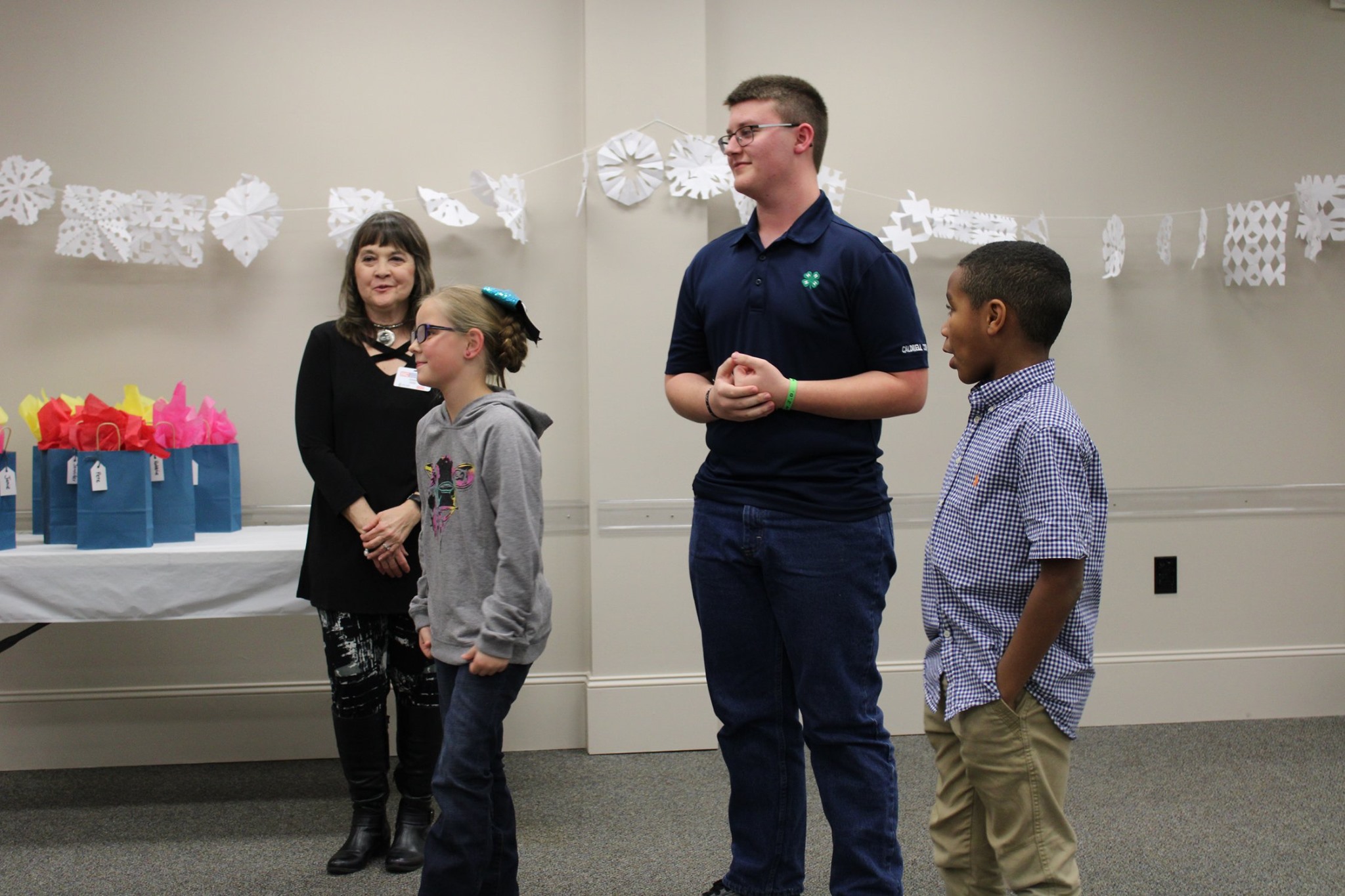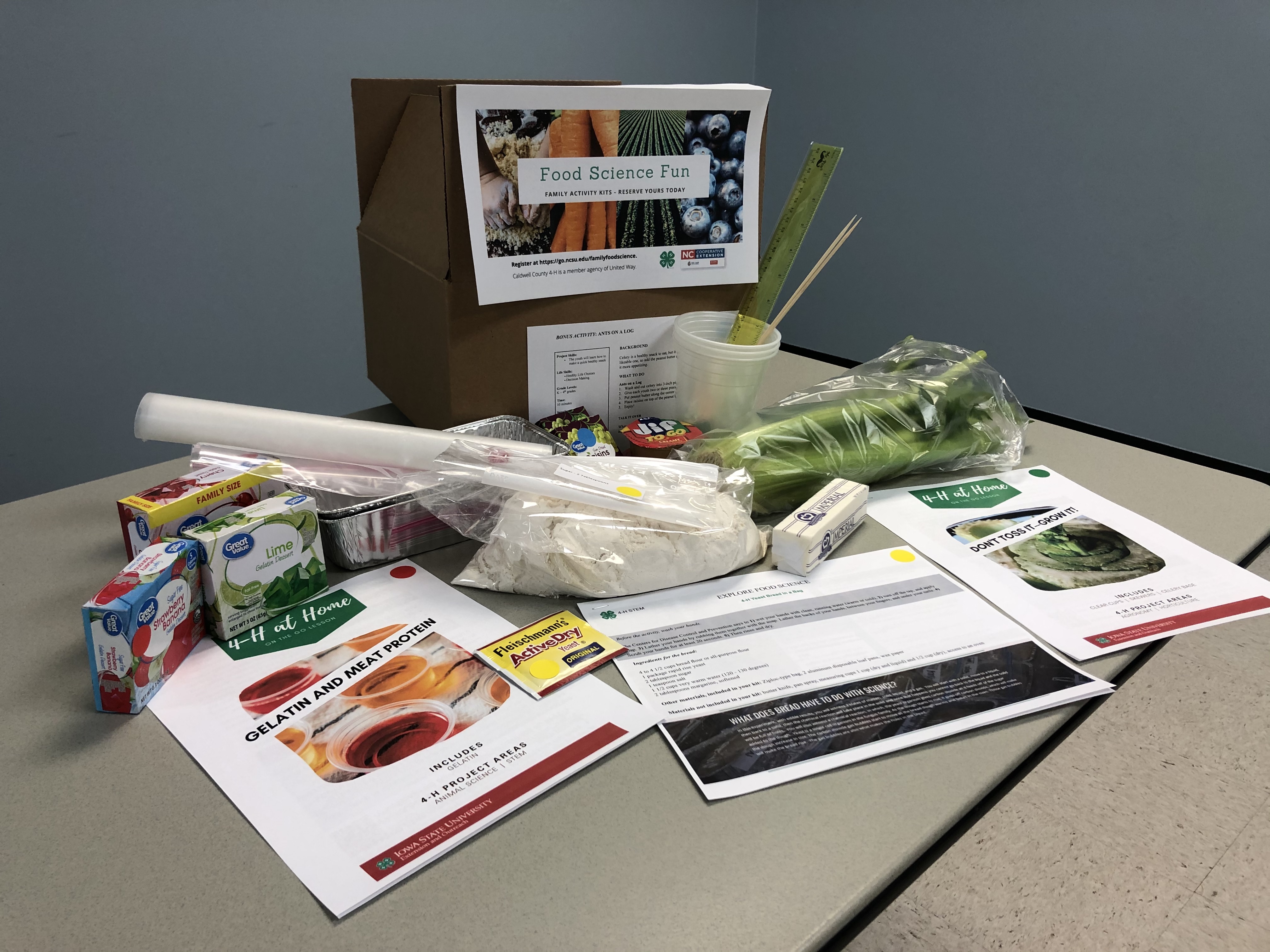4-H Builds Confidence in Youth
go.ncsu.edu/readext?760467
en Español / em Português
El inglés es el idioma de control de esta página. En la medida en que haya algún conflicto entre la traducción al inglés y la traducción, el inglés prevalece.
Al hacer clic en el enlace de traducción se activa un servicio de traducción gratuito para convertir la página al español. Al igual que con cualquier traducción por Internet, la conversión no es sensible al contexto y puede que no traduzca el texto en su significado original. NC State Extension no garantiza la exactitud del texto traducido. Por favor, tenga en cuenta que algunas aplicaciones y/o servicios pueden no funcionar como se espera cuando se traducen.
Português
Inglês é o idioma de controle desta página. Na medida que haja algum conflito entre o texto original em Inglês e a tradução, o Inglês prevalece.
Ao clicar no link de tradução, um serviço gratuito de tradução será ativado para converter a página para o Português. Como em qualquer tradução pela internet, a conversão não é sensivel ao contexto e pode não ocorrer a tradução para o significado orginal. O serviço de Extensão da Carolina do Norte (NC State Extension) não garante a exatidão do texto traduzido. Por favor, observe que algumas funções ou serviços podem não funcionar como esperado após a tradução.
English
English is the controlling language of this page. To the extent there is any conflict between the English text and the translation, English controls.
Clicking on the translation link activates a free translation service to convert the page to Spanish. As with any Internet translation, the conversion is not context-sensitive and may not translate the text to its original meaning. NC State Extension does not guarantee the accuracy of the translated text. Please note that some applications and/or services may not function as expected when translated.
Collapse ▲“What would you try, if you knew you could not fail?”
Many motivational speakers – past and present – have shared this idea to ignite imagination and spark creativity for audiences. Being involved in 4-H, local youth and volunteers could rephrase the speakers’ question to “What will you try, because not trying is the only way to fail in 4-H?”
While it is helpful for people to reflect on their own self-confidence, it is even better for young people – whether in 4-H or not – to be building up their self-confidence as they develop. Goal-setting, recognition and hands-on experiences play an important role in this.
Members in 4-H are encouraged to make a variety of goals during the course of a year. They can be both individual and club or team goals made to reflect interests.
Whenever making goals, leaders emphasize making “SMART” goals. This type of goal is used by people outside of 4-H too, in personal and professional arenas. The acronym “SMART” stands for specific, measurable, attainable, realistic and time-bound.
Specific goals are ones clearly defined. Measurable goals can be easily evaluated. The “A” part of a “SMART” goal reminds members to make goals attainable or achievable. Realistic means that the goal is practical, and the “T” stands for time-bound, meaning there should be a deadline or due date for the goal to be achieved.
Importantly, goals should always be written down, so they can be referenced and reflected on at a later time.

Emma Willett practices emergency preparedness with her younger brother, William, as part of a science 4-H project. Hands-on learning helps youth learn new skills and build confidence.
When setting goals, the age of a young person should be taken into account. For younger youth working on a project, it is common to write three to five goals. Older youth often have more goals and, as they gain more experience in a project area, the goals should be more challenging ones.
Setting and achieving “SMART” goals and working in an area of interest to master skills or concepts builds up confidence in a young person, because their self-efficacy is higher after these experiences.
Self-efficacy, the belief in your own abilities related to a specific task, is connected to self-confidence. When a young person learns how to cook a meal, grow a tomato, write a simple line of code, give a speech or ride a horse correctly, they will be more confident doing it again.
Over time, they do not only know how to complete the task, but they also believe they can do it! That is what mastery or self-efficacy means.
Early in 2021, Caldwell County will celebrate local members’ project mastery during an annual achievement celebration. Team awards, club accomplishments and recognition for 4-H project work will also be included in the celebration.

From left to right, Diana Ford assists with recognition of 4-H members Peyton Taylor, Nolan Wallace and Michael Wallace during the 2020 achievement celebration.
A 4-H project is simply a topic that the member chooses to explore during the year. If they work in a project area for several years, they work toward mastery of skills and in knowledge.
Project work is self-paced and individual. It is an important part of 4-H, because beyond skill-building, it involves a relationship with a caring adult. This, along with meaningful leadership experiences, makes up the critical components of what 4-H calls positive youth development.

Dozens of local youth are trying something new to them this winter break – food science. The “Food Science Fun” educational activities kit was distributed by Caldwell County 4-H December 16-18, 2020.
So, to those in the 4-H community and those who may not be part of it yet, “What will you try next?”
Caldwell County 4-H is a member agency of United Way, and it enthusiastically supports its partnerships. Learn more about 4-H opportunities online at caldwell.ces.ncsu.edu.




